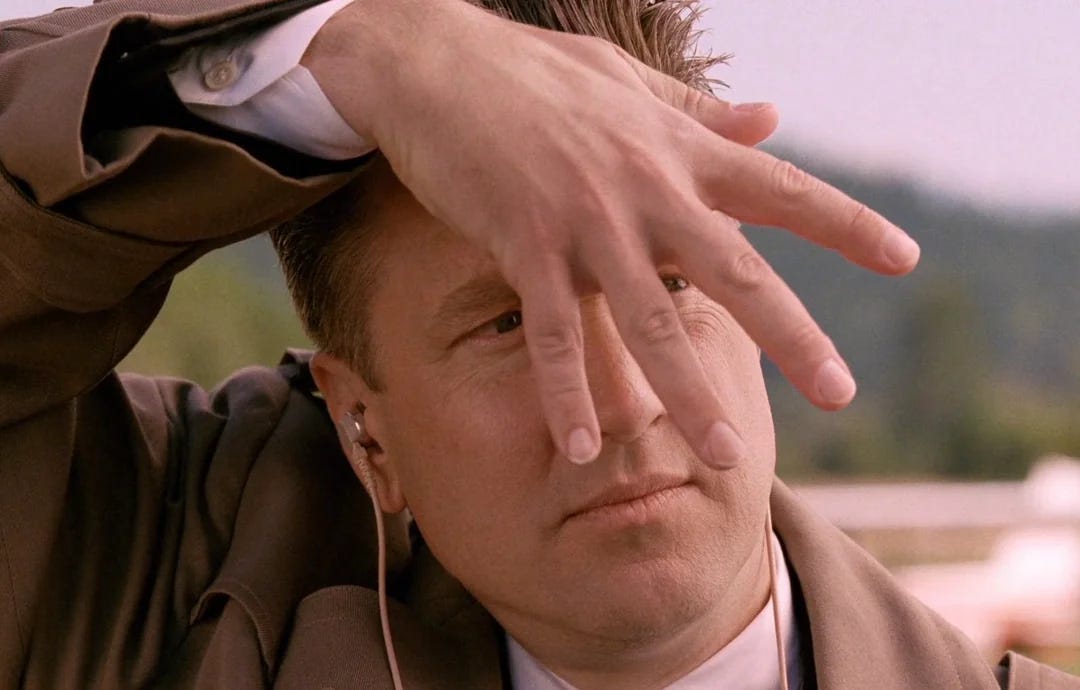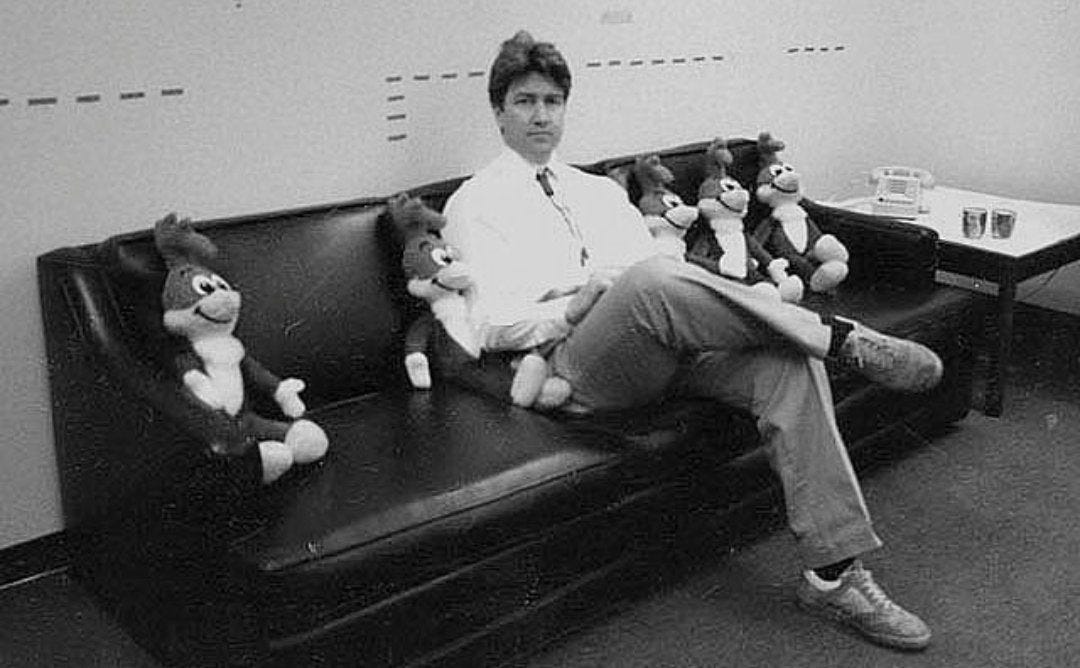An All Pervading Happiness Underneath Everything: Remembering David Lynch
*Minor Spoilers for "Twin Peaks: Fire Walk With Me" and "Twin Peaks: The Return”

“WHAT THE HELL!” David Lynch summed up his work quite well with that line in Twin Peaks uttered by the man himself playing FBI Deputy Director Gordon Cole. Lynch for me was the filmmaker who demonstrated what the true breadth and power of cinema can be and in the wake of his untimely death on January 15th I’m learning that that was the case for a great many cinephiles. While Lynch was certainly known for his surrealist dreamlike style, his true power was in simplicity. You may walk out of Eraserhead or Mulholland Dr confused about the plot but you always felt what they were about. Essentially every one of his films can be boiled down to a concise emotional conflict with the surreal elements serving to heighten the stakes. Eraserhead is about a fear of parenthood, Mulholland Dr about the dangers of fame, and Twin Peaks about evil thriving in plain sight. There’s nothing subtle about Lynch’s work, providing an emotional directness that allows for a great amount of accessibility despite being an avant-garde director. As Mike puts it in Twin Peaks, “I mean it like it is… like it sounds.”
While Lynch was blunt about the horrors of the world he also was open to its joys. There is a remarkable empathy that keeps his films extremely watchable despite how dark and uncomfortable they can be, with Twin Peaks being the best example of this. Coming out in the early 90's where TV was dominated by superficial violent cop stories and soap operas (same could be said of today) where murder and suffering was repackaged episode after episode, Twin Peaks was an experiment in plunging the depths of one crime: Who killed Laura Palmer?
Laura Palmer’s death cracks open the town, revealing many other horrors hiding in the shadows and the culpability of everyone who failed to act before it was too late. Thus, Laura Palmer’s death wasn’t just one crime but many rolled up into one.
The show was a success but the commitment to the single crime did eventually run dry with audiences and the show was prematurely cancelled after a tumultuous 2nd season. After 25 years Lynch returned to Twin Peaks with “The Return”- colloquially known as season 3. Poetically, this turned out to be his last major project. The Return acts as both a wrapping up of the Twin Peaks story and a deep introspection by an artist looking back at their career and honoring their previous collaborators. By 2017, many of Lynch’s best creative friends had died or would die close to the airing of the season. As a result, the season is full of mourning and a feeling of being stuck with key roles mysteriously absent or unrecognizably different. You can never go home again and in this case Lynch can’t go back to the 90s and the original Twin Peaks where both him and his collaborators were at a creative and commercial peak. If the first 2 seasons dripped with sentiment, season 3 drips with cynicism. It’s not all suffering and melancholy though. Nothing is ever hopeless in the world of David Lynch. Evil may be strong but its true power is not in its domination over good but in its ability to make us forget that the good exists. According to David Lynch’s stuffed animals, “there’s an all pervading happiness underneath everything” available for us to tap into anytime. For season 3 that’s Dougie Coop.

Dougie Coop is what a master director does when they’re frustrated with everything they’ve done before and go for a huge swing. In the plotline, Twin Peaks protagonist Dale Cooper takes over the life of a new character named Douglas Jones who looks exactly like him. The catch is that while in this role Cooper is zombified and can hardly communicate except for repetition of words and phrases he hears from others. Did I mention this goes on for about 16 episodes? It’s a bold choice to say the least. Lynch transmutes frustration into gold though as the season progresses with Dougie Coop Forrest-Gump-style transforming the lives of everyone around him for the better in the most absurd and comical ways imaginable. It’s unabashedly sweet and feels like Lynch’s safe haven to return to throughout the season when getting too overworked by the overwhelming loss being explored in the show’s other plot lines.
While David Lynch’s death is tragic, I can’t help but but be content knowing that he is finally reunited with Jack Nance, Catherine E. Coulson, Angelo Badalamenti and all the others he desperately missed. His legacy and work is cemented for decades to come with the term “Lynchian” joining common filmmaking vocabulary. Rest in peace.




